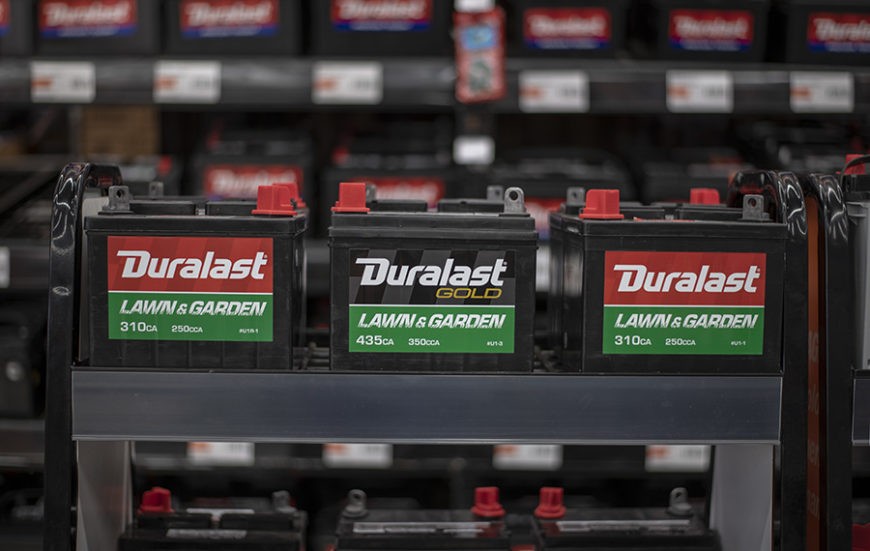It’s a common question among car owners: Are Car Batteries Universal? The simple answer is no. While many car batteries share similarities, they are not universally interchangeable. Just like shoes come in different sizes to fit different feet, car batteries are designed with specific vehicles in mind. Understanding why car batteries aren’t universal and how to choose the right one is crucial for your vehicle’s performance and longevity.
While the majority of car batteries used in gasoline-powered vehicles are SLI (Starting, Lighting, and Ignition) batteries and operate at a standard 12-volt output, this is where the universality largely ends. These SLI batteries are designed to provide a powerful burst of energy for starting the engine and then handle the electrical demands of your car’s accessories like lights and radio. They are built for shallow discharge cycles, meaning they recharge quickly after use.
However, the automotive landscape is evolving. Hybrid and electric vehicles often utilize lithium-ion batteries. These differ significantly from SLI batteries, offering higher energy density and a lighter weight. While lithium-ion batteries provide substantial power, they typically have a shorter lifespan compared to traditional SLI batteries.
Even within SLI batteries, compatibility isn’t guaranteed. Thinking that any 12V battery will work in any car is a misconception. The battery needed for a heavy-duty pickup truck will be vastly different from the battery required for a compact car. Therefore, when considering “are car batteries universal?”, it’s essential to delve into the specifics that dictate battery compatibility.
Why Car Battery Universality is a Myth: Key Factors
Choosing the correct car battery goes beyond just voltage. Several critical factors determine whether a battery is suitable for your vehicle:
1. Battery Size and Group Size: Car batteries come in various physical sizes, designated by group sizes. These group sizes dictate the battery’s dimensions (length, width, and height) and the placement of terminals. Your vehicle has a specific battery tray designed to accommodate a particular group size. Trying to fit an incorrectly sized battery can lead to installation issues – it simply might not fit in the designated space.
2. Cold Cranking Amps (CCA): CCA is a crucial rating indicating a battery’s starting power in cold temperatures. Different engines, particularly in colder climates, require different CCA levels. Using a battery with insufficient CCA may result in starting problems, especially during winter.
3. Reserve Capacity (RC): RC measures how long a battery can continuously provide a specific current draw if the alternator fails. Vehicles with more electrical accessories or those frequently driven in stop-and-go traffic benefit from a higher reserve capacity.
4. Terminal Type and Location: Battery terminals (top post or side post) and their orientation are also vehicle-specific. Mismatched terminals can make connecting the battery cables difficult or impossible.
5. Vehicle’s Electrical System Demands: Modern vehicles are equipped with sophisticated electronic systems, including engine control units, infotainment systems, safety features, and more. These systems rely heavily on a stable and adequate power supply from the battery. An incompatible battery can strain the electrical system, potentially leading to malfunctions and costly repairs.
Using the wrong car battery can have significant consequences. Beyond the immediate issue of the battery not fitting or failing to start the car, it can jeopardize your vehicle’s electrical components. Modern cars are essentially computers on wheels, and their sensitive electronics are vulnerable to voltage fluctuations and power inconsistencies caused by an improper battery.
Choosing the Right Battery: Ensuring Compatibility and Performance
So, how do you navigate the complexities of car battery selection and ensure you choose the right one, given that car batteries are not universal?
1. Consult Your Owner’s Manual: Your vehicle’s owner’s manual is the most reliable source of information. It will specify the recommended battery group size, CCA, and other essential specifications for your car’s make, model, and engine.
2. Utilize Online Battery Finders: Reputable auto parts retailers like AutoZone provide online battery finders. By entering your vehicle’s year, make, model, and engine type, these tools will identify compatible batteries for your car.
3. Seek Expert Advice: Don’t hesitate to consult with professionals. Auto parts store associates or qualified mechanics can provide expert guidance in selecting the correct battery based on your vehicle and driving needs.
4. Match OEM Specifications: For optimal performance and reliability, it’s generally recommended to choose a battery that meets or exceeds the Original Equipment Manufacturer (OEM) specifications for your vehicle.
5. Consider Your Driving Conditions: If you frequently drive in extreme climates or have high electrical demands due to aftermarket accessories, you might need a battery with higher CCA or reserve capacity than the standard recommendation.
In conclusion, while the question ” are car batteries universal?” might seem simple, the answer is a definitive no. Car batteries are vehicle-specific components designed to meet the unique power requirements of different makes and models. Choosing the right car battery is not just about fit; it’s about ensuring your vehicle starts reliably, operates efficiently, and avoids potential electrical system issues. By understanding the factors that determine battery compatibility and utilizing available resources, you can make an informed decision and select the perfect battery for your car.
